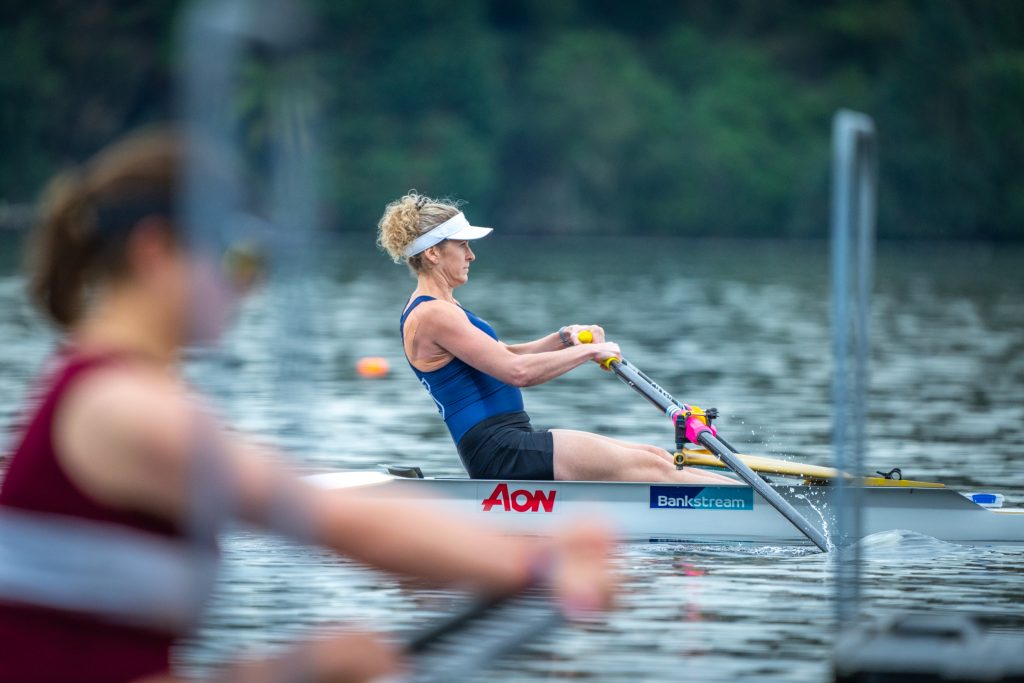Missing buoys, steering off course, falling out of your boat, being late to the start, rushing the slide, or stopping too soon before the finish line are only a few of those rookie mistakes common to the new competitive sculler.
The skills of racing a single scull take time to develop because it is a delicate combination of fitness, technique, mental preparation, tactics, and navigation. If you are new to competitive sculling it is reasonable to expect that it will take three seasons to start having consistent performances. Patience is a requirement. The peaks and valleys of your learning curve are normal. Although you may want to win right away, an internal focus on self-improvement will translate into greater external results in both the short and medium term.
3 Recommendations for you to try
Here are some suggestions to help you stay on track as you pursue your career in the single scull. 
Fitness forms the base of the pyramid to build your technique and mental skills.
- If your sculling technique is not at a level that you can apply power effectively you should use land exercise to get and stay fit while you are in the early learning stages. Progress towards more time in the boat but continue to supplement your sculling with cross-training until you can get a good solid workout in the single.
- Technique will develop in stages and the experience of one season in the boat contributes to the next. First, establish your stability, then bladework, followed by power application, and racing skills at varied stroke rates. Consider full pressure as the best pressure you can row while maintaining good technique. Make drills a regular part of your warm-up and get as much coaching as you can during the early stages of your career by taking lessons, getting videoed or going to a camp.
- Competition is where you have to synthesise the skills you have accumulated to date. A prerequisite for a good race is steering. Learn to steer. Concentrate on one stroke at a time and aim for efficiency each stroke rather than watching your split. After your event, spend some time evaluating it. Write down 10 points you need to work on and 10 points that you did better than last time.
Progress may not feel linear – but remember as you learn new things you will be constantly pushing yourself to new achievements. It’s like walking up stairs, if you find you have gone a step too far and cannot sustain your pace or your technique falters, go back down one step, re-establish your technique and then try again.
![]()
